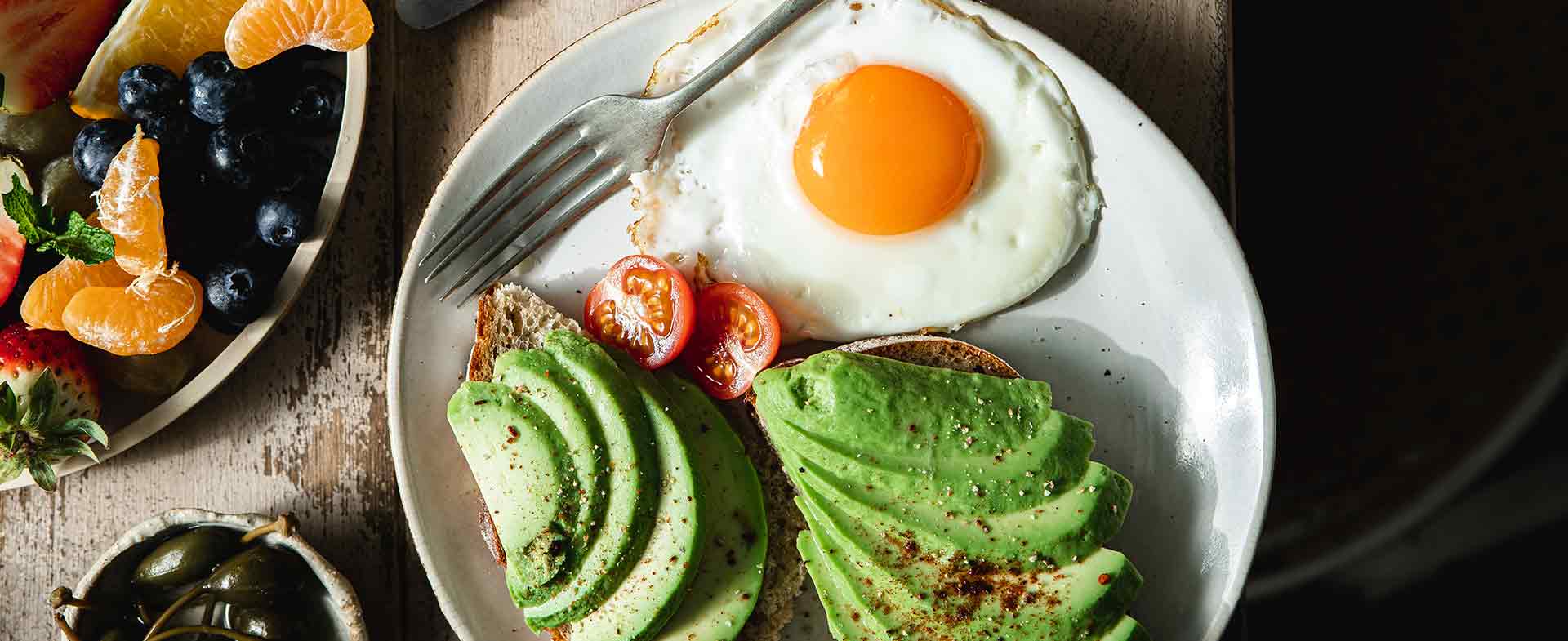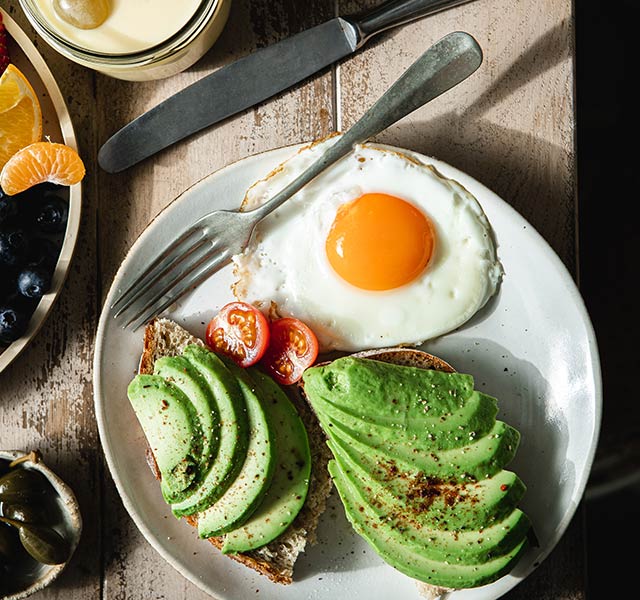Despite how many times you’ve heard the adage that breakfast is the most important meal of the day, you still may not be getting what you really need in your morning meal. Many typical American breakfast options—like bagels, donuts, biscuits and even many cereals—are notoriously high in refined carbohydrates and sugar, while lacking in protein.
“Americans tend to eat a lot of protein at dinner, but not so much in the morning,” says Allegra Picano, RDN, a registered dietitian at Henry Ford Health. “A healthier approach is to spread out your protein intake more evenly throughout the day, starting with breakfast.”
The Benefits Of Protein At Breakfast

Protein is an essential nutrient that acts as a building block for many tissues throughout the body—including skin, hair, bones and muscles. “Eating a diet that’s rich in protein is important for your muscle health,” says Picano. “And the more muscle mass you build, the faster your metabolism is and the easier it is to maintain a healthy weight.”
Trading in some refined carbohydrates for healthy proteins in your breakfast will help better control your blood sugar. “After a high-protein breakfast, your blood sugar can remain low for up to four hours,” says Picano. By contrast, starting the day with refined carbs sends your blood surging—and quickly crashing, leaving you feeling tired and hungry.
Protein also keeps you feeling fuller and more satisfied after your morning meal. “Protein is a very satisfying nutrient,” says Picano. “Getting enough of it in your breakfast may help you eat more healthfully the rest of the day.” By eating a filling breakfast that sticks with you, you’re less likely to snack a lot later in the day.
How Much Protein Do You Need In The Morning?
Protein needs vary from person to person. Your ideal protein intake depends on a variety of factors including your size, age, gender and activity level. The official recommended daily allowance (RDA) is 0.8 grams of protein for every 1 kilogram of body weight. Without doing a lot of fancy calculations, that means the average, mostly sedentary, adult should consume about 55 to 65 grams of protein per day. (If you’re very active, you will need to eat more.)
If you divide your protein intake evenly throughout your three main meals during the day, that means you want to aim for 20 to 30 grams of protein in each meal. But as you focus on increasing your protein at breakfast, don’t lose sight of other important nutrients. “You need to create a meal that nicely balances healthy high-protein foods with whole grains, sources of healthy fats and the important micronutrients found in fruits and vegetables,” says Picano.
High-Protein Breakfast Ideas
When you think of a high-protein breakfast, you may automatically gravitate toward typical American breakfast fare like bacon or sausage and eggs. “Many of us tend to go overboard on animal proteins at breakfast,” says Picano. And while meat and eggs do pack some serious protein, they can also be high in calories and saturated fat. Plus, regular consumption of processed meats (such as bacon and sausage) has been linked with an increased risk of colon cancer and other health problems.
“It’s important to remember that you’re getting some protein in whole grains and even in some vegetables,” says Picano. For example, if you’re eating eggs for breakfast, add some whole grain toast topped with smashed avocado sprinkled with hemp seeds. “Hemp seeds are a great plant-based protein source that you can sprinkle on yogurt, cereal or in a smoothie,” says Picano. Two eggs provide 12 grams of protein while three tablespoons of hemp seeds provide 10 grams; together they easily provide one-third of your daily protein needs.
Other healthy high-protein breakfast foods include:
- Low-fat Greek yogurt
- Whole wheat bread with nut butter
- A breakfast burrito with black beans
- Oatmeal topped with chopped nuts
- Cottage cheese
- A smoothie (blend in high-protein ingredients such as hemp seeds, yogurt, nut butter or protein powder)
Allegra Picano is a registered dietitian nutritionist for the Henry Ford Center for Health Promotion and Disease Prevention.



